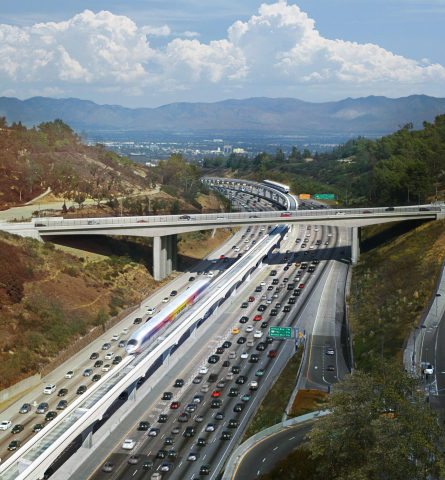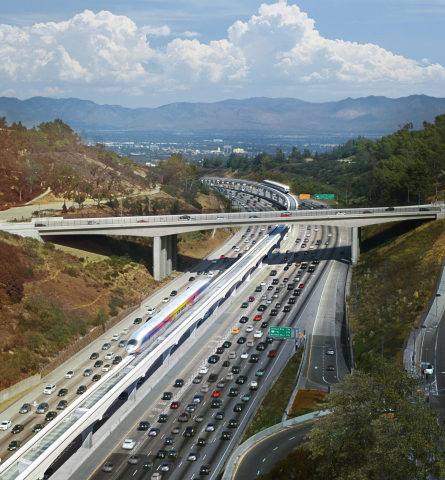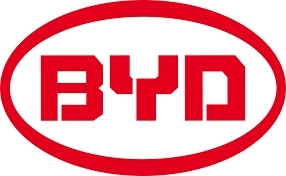LOS ANGELES--(BUSINESS WIRE)--Demonstrating a very strong commitment to diversity and opportunity in the transportation sector, Los Angeles SkyRail Express (LASRE) is partnering with 33 Disadvantaged Business Enterprises (DBEs) as it performs pre-development work on an innovative monorail transportation solution for LA’s traffic-congested Sepulveda Pass/405 Corridor between the San Fernando Valley, Westside, and ultimately LAX.
Going beyond meeting minimum requirements called for in its Pre-Development Agreement (PDA) contract with the Los Angeles County Metropolitan Transportation Authority (Metro), LASRE is proactively affording every practicable opportunity for the DBE community to participate in the Sepulveda Transit Corridor Project.
“Diversity and inclusion are core values for the LASRE team,” said Teresa Maxwell, LASRE DBE Liaison Manager. “DBEs are an integral part of the team and the LASRE Academy workshops and DBE mentoring plan demonstrate our commitment to including small minority and women-owned firms and supporting them throughout every phase of the project so they are successful.”
The LASRE team is comprised of several of the nation’s and the world’s leading transportation, construction, engineering, finance, and technology companies. This predominantly local team is led by John Laing, Skanska, BYD, Gensler, HDR, ACI, and Innova.
Each firm is either headquartered in Los Angeles or has a major regional center here. Combined, the team employs over 2,300 workers in the Los Angeles metro area.
LASRE’s DBE Contracting Outreach and Mentoring Plan builds further upon this commitment by engaging individual DBEs as protégés in a customized Mentor-Protégé Program that addresses their unique needs and focuses on helping the DBE protégés meet strategic business objectives. Additionally, through the LASRE Academy, workshops will be offered to DBE teaming partners to ensure capacity building opportunities are available to small businesses on the project.
If ultimately selected as Metro’s preferred team and technology, LASRE proposes to link the historically underserved San Fernando Valley to the Westside transportation and education hubs, including options to connect directly with UCLA, with a straddle monorail system that runs on narrow guide beams that both support and guide the trains.
Straddle-type urban monorail is proven to provide safe, comfortable and reliable transportation in dense urban areas all over the world, with the International Monorail Association listing straddle-type urban monorail transit systems in 42 cities worldwide, moving millions of passengers per day.
LASRE team members have worked on several such projects. For example, the Team's lead structural engineering firm, Innova, itself a certified DBE, has provided structural design services on new monorail systems under construction in some of the world's largest cities, including Bangkok, Cairo, and Sao Paulo. Further, BYD has extensive experience with such systems, including 14 contracted straddle-type monorail and automated people mover systems in operation, construction, or planning, in both Asia and the Americas.
In addition, LASRE technology supplier BYD also is a member of two teams that have been short-listed to build advanced technology automated people mover projects on the East Coast. BYD is part of Liberty Integrated Connectors, a team vying to build, operate, and maintain a new AirTrain system at Newark Liberty International Airport in New Jersey; and also is a member of The LaGuardia Connectors, a team vying to build, operate, and maintain an AirTrain system for New York’s LaGuardia Airport.
Finally, LASRE’s selected lead construction company, Skanska, has compiled a very strong track record of success in Los Angeles County, both as a builder of several of Metro’s rail rapid transit lines, and as the builder of many Caltrans and local highway and bridge projects, employing thousands of local construction workers and many DBE firms.
Disclaimer
Because Metro has not completed a CEQA review, the information contained herein does not constitute or evidence an approval by Metro of, or commitment of Metro to, any action for which prior environmental review is required under CEQA. Metro retains the absolute sole discretion to make decisions under CEQA, which discretion includes, without limitation (i) deciding not to proceed with the Project (known as the “no build” alternative) and (ii) deciding to approve the Project. There will be no approval or commitment by Metro regarding the development of the Project, unless and until Metro, as the Lead Agency, and based upon information resulting from the CEQA environmental review process, considers the impacts of the Project.




